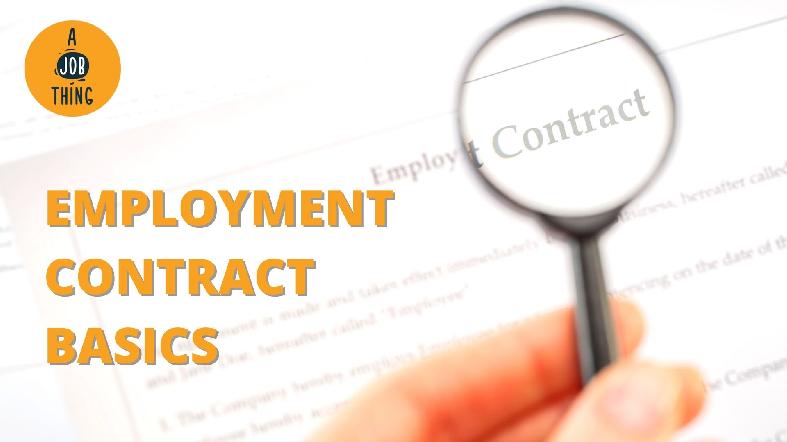
HR Guide: The Basics of Employment Contract
Are You Hiring?
Find candidates in 72 Hours with 5+ million talents in Maukerja Malaysia & Ricebowl using Instant Job Ads.
HIRE NOW
In this article, we will explain the definition of employment contract, types of employment contract in Malaysia, Malaysian laws on the employment contract and other issues regarding it.
What is an employment contract?
According to the Cambridge Dictionary, the employment contract is a written legal agreement between an employer and an employee, giving details about the employee's job, pay, working hours, etc.
Contract of service: An agreement (oral or written) binding on parties who are usually referred to as "employer" and "employee". For instance, a consultant working for a construction company.
Not to be confused with contract for services, which is a contract that refers to a relationship similar to an agency. Generally, a person engaged through a contract for services is not an employee. For instance, a property agent who helps homeowners to sell houses.

An employment contract is a crucial aspect of employment.
Types of employment contract in Malaysia
1. Written Contract
In Malaysia, any employment that lasts longer than one month has to be formalised through a written contract (Section 10(1) of the Employment Act). The contract needs to specify crucial terms of the employment relationship, which includes:
- Work scope
- Work location
- Wage rate
- Wage period
- Employment benefits
- Holidays, annual and sick leave
- Matters related to preserving health and safety
The Employment Act 1955 governs labour contracts, and employers must keep all labour contracts for a period of six years after the expiration of said contracts. The Act specifies that an employment contract cannot restrict an employee's rights to participate or join trade unions.
2. Oral Contract
The Contracts Act 1950 provides that oral promise given by one party to another can form a valid contract as long as it is not needed to be written by law. According to Section 2(1) of Employment Act 1955, an oral agreement between an employer and employee can be accepted as a legally binding contract.
Section 2(a) of Employment Act 1955 also states that " "contract of service" means any agreement, whether oral or in writing and whether express or implied, whereby one person agrees to employ another as an employee and that other agrees to serve his employer as an employee and includes an apprenticeship contract.”

In Malaysia, an oral contract can be accepted as employment, as long as it does not exceed a month of work.
Malaysian Law on Employment Contract
1. Employee rights
According to Section 7 of Employment Act 1955, if an employment contract's terms and conditions do not meet the EA's provisions, then the contract is null and void. The terms that do not meet the provisions shall be replaced by the ones prescribed under the Employment Act, even if both the employer and the employee have agreed and signed the employment contract at free will.
2. Working hours
Based on Section 60A (1) of Employment Act 1955, an employee shall not be required under their contract of service to work:
- Over 5 consecutive hours without a break of not less than 30 minutes
- Over 8 hours in a day
- In excess of a spread over a period of 10 hours in a day
- Over 48 hours in a week
3. Time of wage payment
According to Section 19(1) of the Employment Act 1955, all employers must pay each of their employees not later than the 7th day after the last day of any wage period, which shall be deemed to be 1 month if no wage period is defined in the contract (Section 18(2) of the Employment Act).
Section 19(2) explains that wages for work done on a rest day, gazetted public holiday and overtime shall be paid not later than the final day of the following month.
4. Termination
According to Section 12 of the Employment Act 1955, both the employer or the employee may deliver to the other party notice of their intention to terminate the contract of service. The notice length shall be:
| Length of notice | Employment tenure |
| 4 weeks | Employed less than 2 years |
| 6 weeks | Employed between 2 to 5 years |
| 8 weeks | Employer longer than 5 years |
The Employment Act also states that for a contract to be terminated without notice, or if notice has been given, without waiting for the expiry of such notice, “by paying to the other party an indemnity of a sum equal to the amount of wages which would have accrued to the employee during the term of such notice or during the unexpired term of such notice.”

An employment contract should have clauses to protect the employer and employee while still abiding by the law.
Employment Contract Clauses
1. Type of employment
There are multiple employment structures such as:
- Part-time employment
- Fixed-term Employment
- Permanent employment
2. Employment Scope
The scope usually includes the job title, the reporting supervisor, job description as well as key performance indicators.
3. Compensation
The compensation includes salary, allowances, employee share option schemes or equity grants, fringe benefits and others.
4. Benefits
The benefits section covers annual leave, sick and hospitalisation leave and maternity leave. Some leaves that are not required by the Employment Act 1955 can also be included such as compassionate leave, dental and optical allowances and paternity leave.
5. Confidentiality
This clause is crucial if an employee requires access to confidential information. The confidentiality clause protects employers from the abuse of confidential information that can potentially damage the organisation.
6. Intellectual property
The intellectual property clause is needed especially if the employee is hired to create intellectual property for the business, such as a designer or an inventor. An intellectual property clause ensures the ownership of such rights vest in the employer's business.
7. Termination
Termination clauses are necessary to oversee the obligations of each party when the agreement ends. An employer needs to show just cause and excuse before terminating an employee.
The employer should also specify the situation they deem as serious enough to warrant immediate dismissal without notice in the termination clause.
8. Retirement
The retirement clause sets out the exact retirement age for an employee and how that age is calculated, for example, upon one's birthday or the first day of the calendar year.
Of course, this article is not enough to fully explain each detail of the employment contract. However, it should give you a good idea of how the employment contract works in Malaysia. If you are interested to learn more about employment in Malaysia, you can check out these articles:
The Complete Guide to SOCSO
One Month Notice: What You Should Know About Resignation Periods
From Basic Salary to Minimum Wage: All About Pay in Malaysia
Learn more about us by clicking here!
Sources: Malaysian Litigator, Malaysian Employment Act 1955, Donovan & Ho,



